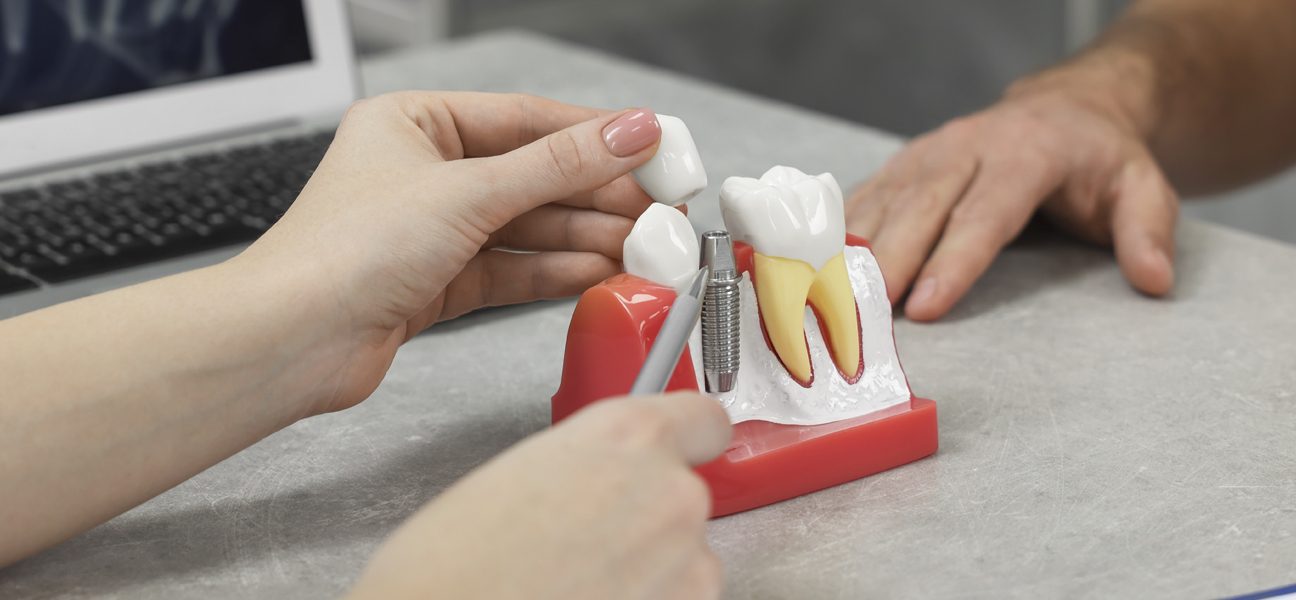Understanding The Dental Implant Process: A Step-By-Step Guide To Understanding What To Expect During The Dental Implant Procedure
Dental implants are biocompatible prosthetic tooth roots that are surgically put in your jawbone to support dental restorations like bridges, crowns or dentures. They are a popular and effective method of replacing missing teeth, producing a long-lasting and natural-looking outcome.>
This article will focus on the step-by-step guide to getting dental implants, the types available, and how to care for them.>
About Dental Implants and The procedure
11Here’s a step-by-step breakdown of what to expect during the dental implant procedure at Glen J. Graffeo DDS
- Initial consultation: Your dentist at 10111who will evaluate your oral health, discuss your goals and expectations, and determine if you are fit for dental implants. X-rays, impressions, or 3D scans of your mouth may be taken to assess how the jawbone and surrounding tissues are.
- Treatment Planning: If you are a candidate for dental implants, a comprehensive treatment plan will be developed. This plan will specify the number of implants required, the placement strategy, and the type of restoration used to replace your missing teeth.
- Implant Placement: The surgical placement of the dental implants is the next step. This is usually done when under local anesthesia to ensure your comfort during the procedure. The dentist will carefully drill small holes in your gum tissue to expose the jawbone and insert the implants. The implants are then securely implanted into the jawbone.
- Healing and Osseointegration: A healing period of several months is required after the implants are placed to allow for osseointegration. During this period, the jawbone fuses with the implants, forming a strong and stable foundation for the artificial teeth.
- Abutment Attachment: After the implants have osseointegrated, a small connector is attached to them. The abutment connects the implant and the final dental restoration.
- Following the placement of the abutments, impressions of your teeth will be taken to create custom-made dental restorations, including crowns, bridges, or dentures. These restorations will be custom-made to match your natural teeth’ shape, size, and colour, resulting in a seamless and aesthetically pleasing outcome.
- Follow-up Care: You will be scheduled for regular follow-up visits to monitor your healing progress and ensure the successful integration of the implant. To ensure the long-term success and longevity of your dental implants, it is critical to maintain good oral hygiene practices like regularly brushing, flossing, and attending routine dental checkups.
Types of Dental Implants And It’s Aftercare
Various types of implants are available, and the specific type recommended for a patient is determined by factors including the condition of the patient’s jawbone and the number of missing teeth. Here are some examples of common dental implants in New York, NY>
- Endosteal implants. These are the most frequently used type of implants. A surgical procedure is used to insert them directly into the jawbone. Endosteal implants, typically titanium, can support individual crowns, bridges, or dentures.
- Subperiosteal implants. They are placed on or above your jawbone but beneath the gum tissue. They are used when there is insufficient bone height or density to support traditional implants. Subperiosteal implants can support dental restorations and are custom-made to fit the contours of the jawbone.
- All-on-4 Implants: This technique involves strategically placing four dental implants on your jawbone to support a full arch of teeth. This is a viable option if you have lost most or all of your teeth. All-on-4 implants provide stability and functionality while requiring fewer implants.
Dental implant aftercare is critical to their long-term success. Following are some critical aspects of implant aftercare:>
- Oral Hygiene: Maintain good oral health care by brushing your teeth daily and flossing once daily. Use non-abrasive toothpaste and a soft-bristled brush to avoid damaging the implant or surrounding tissues.
- Regular dental examinations: Schedule regular dental checkups to monitor your implants’ condition and overall oral health. Your dentist will conduct the necessary examinations, cleanings, and X-rays to detect any potential problems early on.
- Avoid Harmful Habits: Smoking and excessive alcohol consumption can have an adverse impact on your healing process and increase the risk of your implant failing.
- Keeping a healthy lifestyle and eating a well-balanced diet will help to support overall oral health and promote healing.
- Follow Dentist’s Instructions: Follow your dentist’s instructions for post-operative care, medication, and any other guidelines that apply to your situation.
